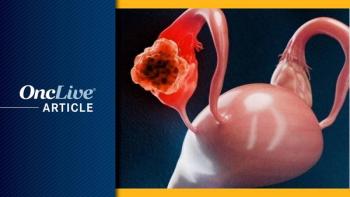
NCCN Guidelines and FDA Approvals for Treating Ovarian Cancer
Bradley Monk, MD, FACOG, FACS: First Leslie, and then I’m going to come back to Matt because I saved all the hard questions for Matt. The NCCN [National Comprehensive Cancer Network] guidelines were updated on March 11th before the April 29 PRIMA and before the May 8th approval. Are they still relevant today? What do you think of the NCCN guidelines? They don’t align with FDA approval, but how could they have because they didn’t know what it was going to be? Doing HRD [homologous recombination deficiency] testing in the NCCN is a level 2B. I get it, if you look at the historical past for GOG-0218, bevacizumab was a level 2B, and then it got FDA approval, and they said, “OK, fine, it’s a 2A.”
It’s a little awkward for me because I’d hope that the NCCN would look at the data and be independent. Maybe they’ve evolved and have changed their perspective. What do you think of the NCCN guidelines today for this upfront management of newly diagnosed advanced ovarian cancer?
Leslie Randall, MD, FACOG: In general, since you were hinting at the philosophy, the NCCN guidelines are important. They help us build consensus on how we should treat our patients. They’re most important when there’s an information void, when there’s a data-free zone. Payers probably use that more than clinicians to justify reimbursement for a treatment or access for patients to a treatment.
Now that we have this data from the FDA, the FDA labels will probably trump the NCCN guidelines, especially from a payer’s perspective. I see them going back to revise the guidelines, and I don’t think I’ve ever seen them revise the guidelines in anticipation of an approval based on data that are presented in a meeting and paper.
Bradley Monk, MD, FACOG, FACS: The challenge with PAOLA, thank you for presenting that by the way, is that once you start on bevacizumab, you’re going to continue it. What the NCCN doesn’t do is they don’t add guidance or guidelines on when to use bevacizumab. How does that make you feel that they don’t give information about when to use and when not to add bevacizumab?
Leslie Randall, MD, FACOG: I’m glad.
Bradley Monk, MD, FACOG, FACS: What?
Leslie Randall, MD, FACOG: It makes me glad that I get to choose based on my patients. They’re flexible.
Bradley Monk, MD, FACOG, FACS: They’re supposed to be guidelines, not options. It’s not the NCCN options. It’s the NCCN guidelines. Go ahead, Matt.
Matthew Powell, MD: I would have to say that they are payment options, as Leslie’s point is. The NCCN is a broad group. It’s not like, this is the best practice at this time when this committee meets. In fact, when they get a 2B recommendation, it just means not everybody agreed. Less than 50% agree that this should be a standard at this point. If we look around at just the members of this call, we don’t all agree on the value of HRD and what the best test is. When should we do the test? It doesn’t surprise me that it got a 2B recommendation back in January. There will be a revote, and they’ll say, “Yes, the FDA says we need this test to combine these 2 drugs.” It’ll be a 2-way recommendation.
Bradley Monk, MD, FACOG, FACS: They’re the most valuable in the rarer tumors, right? Like the sarcomas and those sorts of things. For these sorts of things that I see every day, it’s about reimbursement. What do you think, Michael, on the NCCN? Then I’m going to move on.
Michael J. Birrer, MD, PhD: I agree with what was said. If you go back historically to when NCCN was created—when Bob Young, [MD,] led that whole movement—it was to get a group of experts outside of the NCI [National Cancer Institute] and outside of the FDA that would provide them with reimbursement. That’s got a lot to do with it. You’re right, the companion diagnostic will work its way in. There’s no issue about that.
Transcript edited for clarity.




































